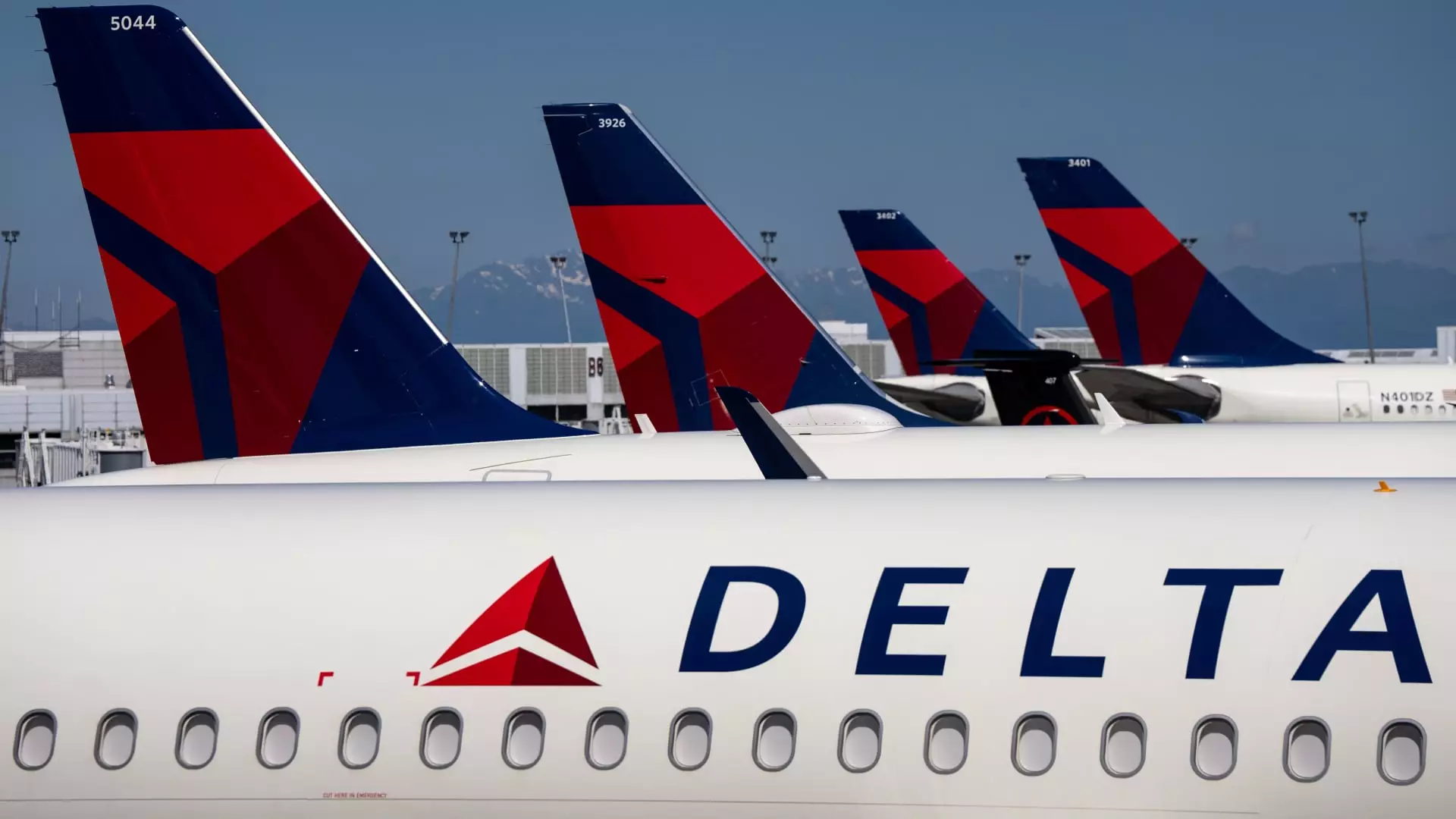In today’s turbulent economic climate, the aviation industry stands as one of the most visible indicators of consumer sentiment and corporate confidence. Delta Air Lines, a leader among U.S. carriers, has recently found itself navigating choppy waters courtesy of unforeseen trade policy changes under the Trump administration. CEO Ed Bastian has not minced words, labeling these policies as a “wrong approach.” As Delta retreats from its expansion plans for the second half of 2025 due to discouraged bookings, we confront both the fragility and complexities that come hand in hand with running a major airline.
Resilience in Numbers: Earning Adjustments and Consumer Confidence
The numbers might speak of resilience; Delta’s net income surged to $240 million in the first quarter, a staggering increase from the meager $37 million a year prior. However, the underlying narratives tell a different story. With revenue growth barely cresting the 2% benchmark, the airline’s projected earnings for the second quarter fall short of Wall Street’s expectations. This juxtaposition illustrates the precarious balance Delta must maintain: while the bookends are favorable, the overarching trend points towards an erosion of consumer confidence, compounding fears of an impending economic slowdown.
Bastian’s observations about the decline in consumer spending resonate with the growing pessimism plaguing small and corporate businesses alike. The realities of consumer sentiment have become sharper, as travel—a discretionary expense—takes the hit. As corporate travel plans are re-evaluated, Delta must confront not only an operational challenge but a public perception issue, one that could jeopardize future revenue streams.
The Impact of Trade Policies on Travel Demand
Trade policy, notably under the Trump administration, casts a long shadow over the airline industry. Delta is not isolated in feeling the repercussions of such decisions; indeed, corporate America is collectively reconsidering budget allocations, travel plans, and even workforce sizes. “With broad economic uncertainty around global trade, growth has largely stalled,” Bastian remarked, capturing the tremors sparking from the trade war front. The very policies that aim to prioritize homegrown businesses can inadvertently stifle the consumer base that airline companies, like Delta, depend upon.
Furthermore, this stalling growth leads to a self-perpetuating cycle. As consumers lose confidence, their willingness to spend diminishes, leading to an overall reduction in travel demand. The ripple effect extends beyond Delta to the airline sector’s broader landscape.
Delta’s Strategic Shift: Focus on Profitability and Cash Flow
In the face of uncertainty, Delta has smartly pivoted towards safeguarding its profitability and cash flow. The company’s decision to abandon its previously envisioned capacity expansion, opting instead for a static year-over-year capacity, underscores a strategic shift that prioritizes sustainability over unchecked growth. This transition signifies an acute awareness of market realities—one that contrasts starkly with profit-driven expansionism that often characterizes the airline industry.
By turning a keen eye towards cash flow and margin protection, Delta signals to its investors and stakeholders that it is not merely surviving in a challenging environment but actively recalibrating its operational focus to ensure long-term viability.
The Broader Industry Implications
Delta’s troubles are not standalone. United, American, and Southwest airlines will soon present their earnings, and it is likely that they will echo similar concerns. As Wall Street adjusts its earnings estimates and price targets for the airline sector, the real question emerges: will this represent a temporary setback or a pronounced shift in the airline industry’s trajectory?
The potential for widespread contraction within this sector necessitates an honest discourse about the economic ripple effects of policy decisions. Not merely an industry anomaly, the challenges faced by Delta reveal broader societal and operational implications that extend beyond the conference room and board papers.
A Call for Resilient Leadership
As Delta stares down the barrel of slim profit margins and declining consumer confidence, it serves as an enlightening case study for leaders across sectors. The necessity of adaptable, resilient leadership has never been more apparent. Embracing shift, evaluating the economic landscape critically, and pivoting when required are essential traits for any business leader. The lessons Delta conveys may well shape the next generation of decision-makers in these unpredictable, high-stakes environments.


Leave a Reply